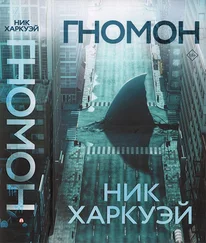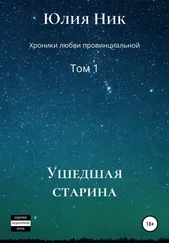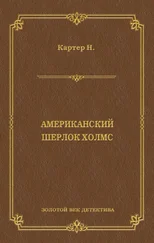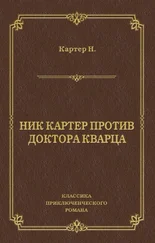“No.”
“About one third. If they die, the human effects will be appalling. Migration. Famine. War. Perhaps more than that.” He shakes his head. “Appalling. But we don’t see it, do we? We never see it.” He’s veering off again, into his own world, and his gaze slides from Joe’s. “Another sign, I suppose. It’s time, and past time. So…” He threads between the hives to a lump in the middle of the room, covered by a cloth. “Camouflage, you see? Where would you hide a tree? In a forest, of course. So… where to hide this? Amid a forest of bees!”
He throws back the cover, and underneath is a brassy object, three foot high and chased in silver. Sort of Art Deco. Sort of Modern. Sort of Arts and Crafts, and almost certainly handmade to order. Joe Spork stares at it.
It’s a model beehive.
The body of the hive is in the classic style, like a tower of doughnuts, each one smaller than the one below. Etched into the metal, a fine tracery of curlicues and lines, and at the top, a curious basin which speaks of an absence. There’s something missing, like a Rolls-Royce without a hood ornament. He wonders what it could be, then realises the answer is obvious.
“The Book,” Sholt says fraughtly.
Joe starts guiltily, and takes the doodah from his bag.
“Yes,” Sholt murmurs. “Read the Book, muffle the drum. Muffle the drum. Marching soldiers, someone comes.” Then, with sudden suspicion, “Will it work?”
“I think so. I did my best with it. It’s… special.”
“Yes,” Sholt murmurs. “Yes, of course. That was very good of you. Appropriate. I’m never sure whether Ruskin would approve of this. Truth and deception. Light and shadow. They used to say that Gothic architecture was about creating spaces for shadows. All that ornamentation was about what you couldn’t see. Concealment. The divine in the darkness. I’m not sure he’d approve. But we’re not Ruskin, are we?”
“No,” Joe says, after a moment. “We’re not.”
Sholt gestures to the hive, and suddenly it can’t happen soon enough, his hands are shunting Joe forward, little knobbly fingertips poking, faster, faster. Joe moves forward, and arranges the doodah and sets its various parts in place. So, and so. The armature immediately opens the cover, and starts to flick through. Flickflickflick . And back to the start. Teeth lock in the punched section of each page, rapid brass flickers like lizard tongues. Well enough.
He’s delighted, actually. A clockwork item dormant this long (and unwound? Or, is this thing powered by something more baroque?). He closes the panel, noticing on the inside the familiar weird little symbol, like an umbrella blown inside out by a storm. From within the hive, he hears a sudden quickening, flickaflackflack , and thinks “It is alive!” He manages to refrain from throwing back his hands and saying this, Frankenstein-style, to Sholt. He suspects it would be inappropriate.
Sholt embraces Joe in mute delight, and then, because Billy Friend is too slow to get his guard up, him as well. Then the roof of the hive opens.
From within, bees emerge. In single file, each on a little platform, they come into the scant daylight and bask. They flutter their wings as if stretching or drying out. Ten, twenty, thirty of them, in a gorgeous geometrical spiral around the hive. More. Joe peers at them. They must be real. They cannot possibly be what they appear to be. Mechanical bees?
He looks closer. Black iron, yes. And gold. Tiny legs jointed with hinges. He’s suddenly conscious that he doesn’t know, really, how real bees are assembled. It is possible—plausible—likely, even—that he would not be able to tell the difference between the rare Apis mechanistica , with its deceptive metallic-seeming wing-cases and chitinous body which gives the appearance of etching (assuming such an animal exists), and a bee made of actual gold. In his mind, David Attenborough discusses the rare bee in breathy, pedagogic phrases husked out as he lies on his tummy and tries to get a closer look: Dormant until the conditions are right, this is England’s rarest insect. It’s so unusual that it has no natural predators at all… Of all the inhabitants of the Earth, only man is a danger to this extraordinary bee… and it is splendid .
Joe reaches out, then hesitates. He doesn’t particularly like bugs. They are buggy, and alien. The nearest bee stops, and wriggles. He hears a whirr and imagines there might also have been a tiny clank . Breathless, he touches the bee on its back with his index finger. Ambient temperature. Dry. It does not apparently object. A machine would not. An insect… he has no idea. Probably. But bees are phlegmatic, and this one is sleepy. Perhaps Apis mechanistica likes to be stroked. He removes his hand. The bee rolls off the sculpture onto the floor, makes a very clear metallic tink and lies still.
He glances guiltily at Ted Sholt, but Sholt does not appear to be enraged. Joe reaches down to pick up the bee. Looking closely at the legs, he can see bolts, pins.
Amazing.
He puts it back onto the hive, and it pauses, then hums to life again. The others move into a new pattern. The little plates or platforms which brought them retreat into the hive to fetch more, but the original bees remain where they are, still fluttering. More magnets, Joe surmises, moving under the skin of the hive. Or—he’s not clear on physics, but it must be possible—perhaps an electrical current running through the skin itself. If this object dates from the fifties, it’s plausible.
Sholt watches, entranced.
“Breathtaking,” Joe says after a moment. It is. It’s a combination of craftsmanship and engineering beyond anything he has ever seen. And yet, it seems a bit disappointing. How much more could you do with all that effort?
But perhaps it does do more. Perhaps he’s mistaken the timescale. Victorian automata are short-lived performances, like Billy’s rutting nobility. Sholt’s hive is more recent, and at least as much a thing of science as glamour. Someone took great pains with this, and set it out here on the edge of Britain, in the wind and rain. Wind powered? Waves? Perhaps it’s a fanciful way of measuring weather: a barometer of bees. Or it could owe allegiance to an altogether different perception of art, a motile sculpture—the full cycle could last a year. With the right equations, it could be almost infinitely varied, a thing of beauty in constant flux. A mathematical proof, writ in precious stones. Cornwall is filled with the insane, brilliant products of men and women washed down from London to the farthest reach of the south-west: Fermat’s theorems sculpted in papier mâché , Heisenberg rendered as music, Beethoven as blown glass. Perhaps this is some such piece, lost for half a century and now awoken. He smiles to himself. He’s part of something.
A fragment of his mind tells him he needs to be part of things more often.
“Yes,” Sholt breathes. “It is. It still works! All this time! Oh, the world’s going to change now! Everything will change! Hah! Everything.”
Joe peers at it. Perhaps the world will change for Sholt, he concedes. Ted Sholt, owner of one of the most prestigious mechanical mobile sculptures in the world, precious metals and jewels alone worth a hundred grand, value as an artefact almost incalculable. One of Joe’s Middle Eastern clients would pay almost anything for this.
So, yes. For Sholt, the world will change. That sackcloth robe will be relegated to the greenhouse. There will be women, or men. He will have traction in the world, if he wants it. At least in a small way. Perhaps he will be on the news.
“What is it?” Joe asks. “What does it do?”
Sholt smiles. “Oh,” he says. “It makes angels out of men.” And when Joe does not immediately look as if he understands, Sholt continues. “It is an arrow, fired at the temples of Moloch and Mammon. It makes the world better, just by being. Isn’t that wonderful?”
Читать дальше
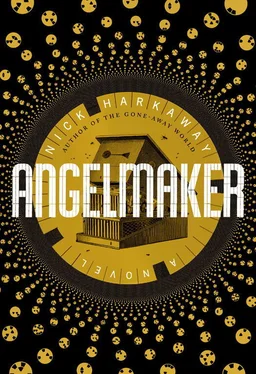
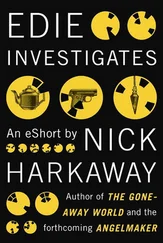
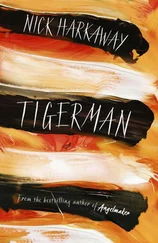
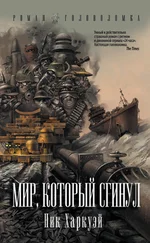
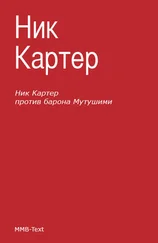
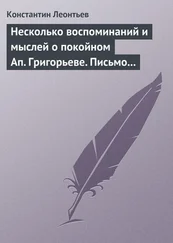

![Ник Харкуэй - Гномон [litres]](/books/400023/nik-harkuej-gnomon-litres-thumb.webp)
